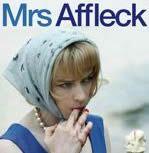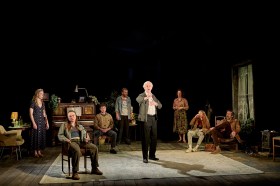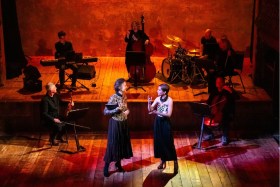Ibsen is for all time, says director Marianne Elliott in the programme notes for Mrs Affleck, which is currently in the Cottesloe at the National Theatre. Mrs Affleck is a play set on the Kent coast in the 1950s and is a version of – not a translation of – Ibsen’s Little Eyolf. If Ibsen is for all time then it seems an odd decision to plonk him so precisely in one historical moment and overegg the pudding with enough uber-topical references to satisfy even the most ardent Life On Mars fans when it comes to period detail.
The play charts the events surrounding the drowning of little Oliver Affleck, a child crippled both physically and emotionally by the deficiencies of his parents.
There can be almost nothing worse for a couple than to lose their only child and the Afflecks were not exactly enjoying marital bliss before this terrible event: Mr embroiled in an unresolved semi-incestuous entanglement with his half-sister and Mrs unfulfilled, sexually frustrated and stuck in a surgically clean seaside kitchen.
The kitchen stands at one end of an unwieldy traverse staging that only comes into its own after the interval: too much of the first half action takes place at one end of the playing area, leaving the rest of the audience with cricked necks.
The trouble with this production is that it cannot decide what to be ‘about’ and so it flounders in a sort of smorgasbord of unfocussed angst. Clare Skinner is too attractive and too good an actress not to make something of the title role and Angus Wright does well enough as her husband but the whole thing is heavy weather and not helped by the constant chugging of the smoke machine.





